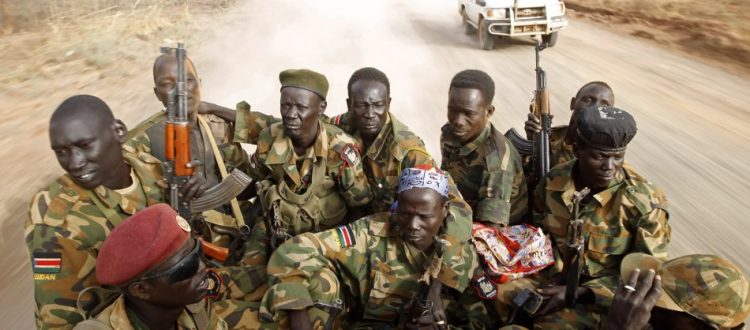Updates on peace in the Greater Horn and Great Lakes Region of Africa
TransConflict is pleased to present an update on conflict dynamics and peacebuilding efforts in the Greater Horn and Great Lakes Region in Africa.
| Suggested Reading | Conflict Background | GCCT |
By Kisuke Ndiku
It is a timely juncture in which to offer an update on peace in the Greater Horn and Great Lakes Region in Africa – South Sudan, Ethiopia, Eritrea, Djibouti, Somaliland, Somalia, Kenya, Uganda, Tanzania, Rwanda, Burundi and Eastern Democratic Republic of Congo.
In the Eastern DRC, an uneasy peace continues, undermined by pockets of militia fomenting conflict to exploit both political and mineral wealth. It is perceived that this has the support of various external players, causing eastern DRC to be continuously volatile. Its volatility is of concern in the region as it always affects neighbouring countries.
Burundi and Rwanda had uneasy elections in 2015. In Burundi, uneasiness set in after the elections, with some opposition groups fleeing into Eastern DRC just as it has in Rwanda. Of the two countries, Burundi is more violent and more covered by the media and agencies such as Amnesty International, ICG and the UN. Rwanda is politically stiff, with the opposition mollified even though citizens are not satisfied with their living conditions. Perhaps it could be stated here that peace has attributes of endurance.
Due to a desire not to enter into outright conflict though powerless, a majority of citizens in Rwanda and Burundi have preferred to endure economic and political hardship. Poverty is a big issue undermining peace in both. Apart from the capital cities (Bujumbura and Kigali) in both countries, communities in the rural areas live far below the poverty line (less than $1.25 – UN and World Bank 2011).
In Uganda, uneasiness prevails as well with the oppositions pummeled to the ground. Even though citizens in Uganda desire a change of the top leadership but through peaceful means, change was not delivered in the recent elections. In Tanzania tranquility prevails even though the recent elections had pitfalls, especially in Zanzibar and few localities in the mainland. The newly-elected president has confronted corruption and mediocrity in public service, winning many to his support; but this does not at all address the issues raised in the political space.
In Somalia and Puntland, weak governance has given spaces for Al-Shabaab to continue to ravage different communities and key installations in the government’s centres of power. From the localities they occupy, Al-Shabaab send suicide missions to different places inside and outside of Somalia. Frequent suicide bombings and confrontations with the AU (AMISOM) and Government forces occur. Somalia therefore remains one of the most volatile parts of the region. It is to be observed that non-state actors in Somalia have tentacles into and with other radical international groups. Their role and support in Yemen and the Arab block has not been disputed.
In South Sudan, the context of peace is interrupted by localized vengeful attacks between communities and by armed forces (state and non-state) which continually occur. South Sudan constitutes the second most volatile country in the region. The prevailing content and context has began to Balkanize the country, both at community level and from the political front. A recent article pointed to the plight of this country.
Kenya, though peaceful, has had to constantly ward off Al-Shabaab insurgencies, both at its borders and inside the country in Mandera and Wajir (north east) Coast and Garissa in the East, as well as in Nairobi. Internally crime and social unrest are growing. The country is about to have another election (2017). Ten years after events that led to impromptu violence, questions are rife as to how well prepared the communities, politicians, political parties and relevant organs of government are to undertake peaceful elections. As pointed out in a recent article, there are concerns about early preparedness and readiness towards peaceful electioneering.
The region is also experiencing radicalization of youth and extremist violence. Issues of radicalization have to change to seek effective measures that promote amicable de-radicalization and peaceful engagement of youth and their communities. This would require better addressing basic needs through socio-economic growth. Approaches that genuinely offer legitimate political and democratic freedoms and space for active participation are essential. In addition, increased equitable grassroots-based participation by all echelons of society in governance is needed. Issues of extremist violence have to be confronted with peaceful active non-violence. Law enforcement has to embrace a community orientation that promotes local peace. This has not yet been exploited.
Overall the Greater Horn and Great Lakes Region in Africa has been relatively stable but the concerns of governance and peace continue to be given very limited attention. This only happens when violence and disruption give rise to some short term attention to violence and conflict, but not to peace. This is where a change is needed, focusing peace as opposed to focusing on violence. Peace as a continuum that assures growth and freedom needs to be catalyzed more than before through concerted engagement between communities, politicians, political parties and relevant organs of government. Exploring, identifying and using key pillars that contribute to community peace needs attention in each country.
Kisuke Ndiku is based at PRECISE, a regional agency involved in organizational development, strategic management of change, leadership development and planning in Africa.
The views expressed in this article do not necessarily reflect the views of TransConflict.




















Pingback : April 2016 Review - TransConflict
Pingback : What is happening in the Greater Horn and Great Lakes Region? - Conflict and Peace Studies - Conflict and Peace Studies
Nice article